You Create to Break Free.
There is a certain kind of creative who walks into a room and seems to bend the air around them. Not through force, but through frequency. They buzz at a different wavelength; one that refuses to harmonize with the status quo. Their ideas feel electric. Their work feels alive. You can sense it: they are not here to replicate what has been done. They are here to break something open.
Visionary Rebels create to break free. Free from convention. Free from expectation. Free from the ways identity, art, and meaning have been policed and confined. In doing so, they often break the rest of us free, too.
In this essay, I want to explore this archetype through both a personal lens and a cultural one. We’ll unpack its core themes — Liberation, Play, and Self-definition — and examine how these energies show up through the lives and works of Visionary Rebels like
, Naomi Osaka, and Mo’Nique, as well as fictional counterparts like Darius (Atlanta), Leah (Boarders), and Elsbeth (Elsbeth and The Good Fight).Along the way, I’ll reflect on what the Visionary Rebel teaches us about art, freedom, and the evolving culture of creative possibility.
The simplest way I can describe the Visionary Rebel is this: they are the wild card with a cause.
Their work doesn’t follow a clear formula or satisfy a linear logic. It’s not engineered to please. It’s not always easy to digest. But it always makes you feel something. Sometimes it jolts you awake. Sometimes it confuses you in the best way. Sometimes it invites you into its strange, beautiful rhythm and refuses to let go.
The Visionary Rebel operates at the intersection of messy and magical, playful and purposeful. They experiment not just with artistic form, but with freedom itself; freedom of thought, freedom of expression, freedom of identity.
I often think of them as carrying the spiritual DNA of figures like Jean-Michel Basquiat, whose graffiti gospel told raw, fractured truths in a visual language all his own. Or Vince Staples, whose sharp, self-aware lyrics cut through the noise of hip-hop with biting wit and clarity. Or Tyler the Creator, whose sonic and visual worlds are gloriously chaotic, cinematic, and defiantly self-defined.
These are artists who refuse to be pinned down. They remind us that art doesn’t have to explain itself. It doesn’t have to follow rules. It doesn’t have to “make sense” in the traditional sense, it just has to crack open the world and make you feel.
As The Culture Keeper, I believe we need these figures more than ever in a cultural climate obsessed with polish, perfection, and algorithms. The Visionary Rebel reminds us that there is power in the unpolished, in the disruptive, in the work that resists easy packaging.
Core Themes of the Visionary Rebel
Let’s explore the three core themes of this archetype: Liberation, Play, and Self-definition.
Liberation
At its core, the Visionary Rebel is driven by a deep yearning for liberation; not just personal, but collective.
They want to break free from oppressive narratives about who they are supposed to be, how art is supposed to look, how stories are supposed to be told. They challenge the structures and institutions that confine imagination and creativity.
And they do this not just through critique, but through embodied practice. They create alternative spaces through their work; spaces where freedom is not just theorized but felt.
Amanda Seales is a powerful example. As an actress, comedian, and activist, she consistently uses her platform to disrupt dominant narratives about Black womanhood, politics, and culture. Her HBO special I Be Knowin’ was not a slick, apolitical stand-up set. It was a bold, unapologetic exploration of race, gender, and power; delivered with humor and intellect in equal measure.
But Seales doesn’t stop at performance. She creates educational content, challenges media gatekeepers, and openly critiques the entertainment industry’s treatment of Black creatives. Her work is about more than entertainment; it’s about liberating the stories and voices that have been marginalized or distorted.
This is the Visionary Rebel at work: refusing to shrink for the comfort of others, and inviting us all to consider what liberation might look and feel like in our own creative lives.
Play
If liberation is the Visionary Rebel’s cause, play is often their method.
There is a gleeful, mischievous quality to much of the work that emerges from this archetype. The Visionary Rebel delights in experimentation, in breaking and remaking form, in pushing genre boundaries until they blur and dissolve.
Think of Naomi Osaka. Yes, she is a world-class tennis player, but she is also a cultural disruptor. Osaka has used her platform to speak out on mental health, racial justice, and the pressures of public life. But she also brings a playful, creative energy to how she presents herself and her brand.

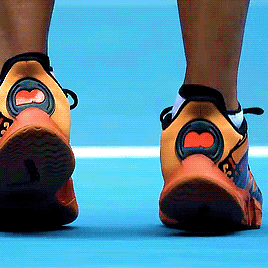
From her fashion collaborations to her unexpected public statements, Osaka is not interested in fitting into the polite, corporate mold expected of global athletes. She plays with expectations. She embraces contradiction. She invites us to imagine new ways of being powerful and public.
This spirit of play is deeply political, especially for creatives navigating industries and cultures that seek to flatten them. Through play, the Visionary Rebel asserts their right to complexity, to contradiction, to creative joy.
They remind us that freedom is not only a fight — it is also a dance.
Self-definition
Ultimately, all of this points toward the Visionary Rebel’s deepest drive: the quest for self-definition.
This archetype is not interested in being defined by anyone else — not by mainstream culture, not by industry trends, not by historical narratives. They seek to define themselves on their own terms, through their own work.
Mo’Nique embodies this in powerful ways. Her career has been marked by both mainstream success and public controversy, much of it stemming from her refusal to conform to Hollywood’s expectations of how a Black woman should move, speak, and negotiate.
When Mo’Nique called out Netflix for pay discrimination, many dismissed her as difficult or ungrateful. But in truth, she was acting from the core energy of the Visionary Rebel: naming the system’s limitations and insisting on her worth.
Throughout her stand-up, acting, and public statements, Mo’Nique has modeled a fierce commitment to self-definition. She challenges us to consider what we are willing to risk in order to remain true to ourselves. And she reminds us that self-definition is not a one-time act; it is an ongoing practice of creative and cultural resistance.
Visionary Rebels in Fiction
Just as we see this archetype in real-life creatives, we also see it powerfully embodied in fictional characters. Let’s look at three striking examples:
Darius (Atlanta)
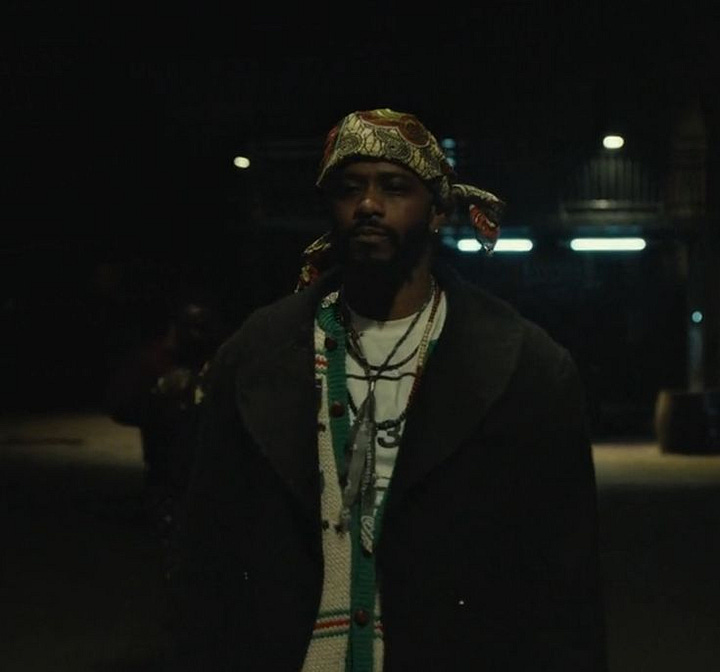
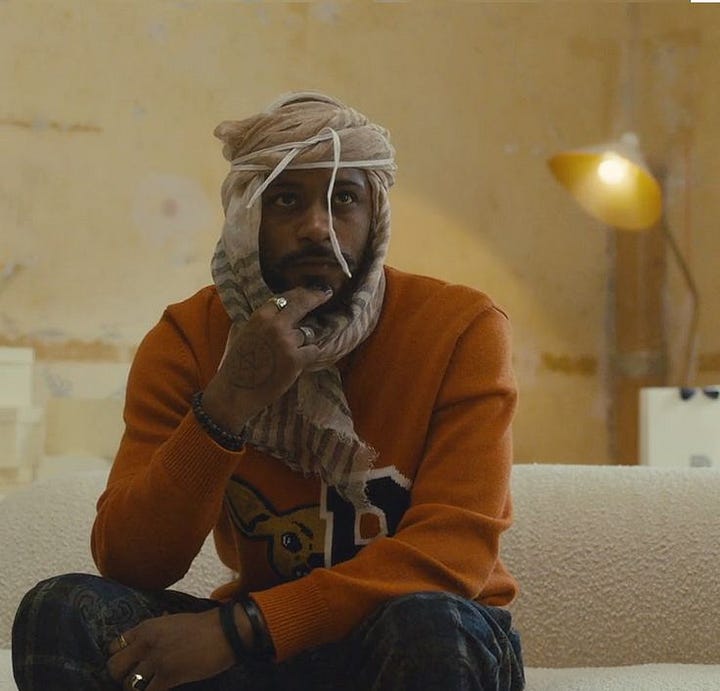

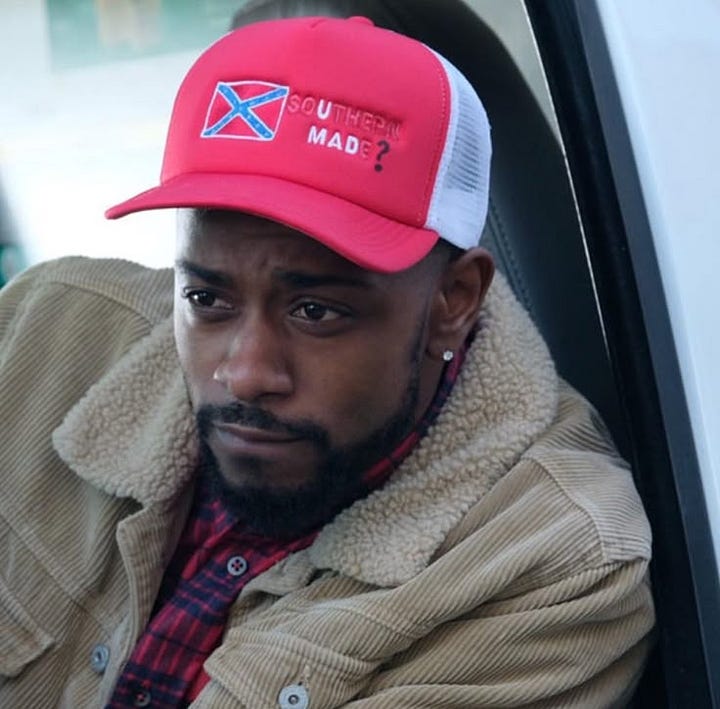
Darius, the enigmatic friend of Earn and Paper Boi in Atlanta, is a quintessential Visionary Rebel.
He moves through the world according to his own strange, intuitive logic. He is a philosopher and a trickster, an artist of life itself. Darius’ actions often seem nonsensical on the surface, but they contain deeper wisdom about freedom, authenticity, and the absurdity of social norms.
Through Darius, Atlanta invites us to question our assumptions about reality and meaning. He reminds us that sometimes the most visionary path is the one that refuses to make linear sense; a core truth of the Visionary Rebel.
Leah (Boarders)
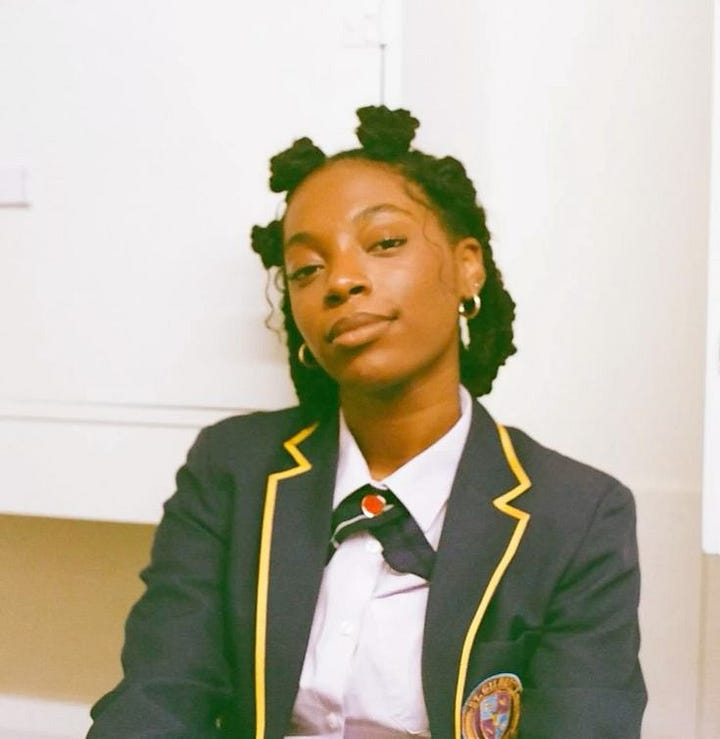
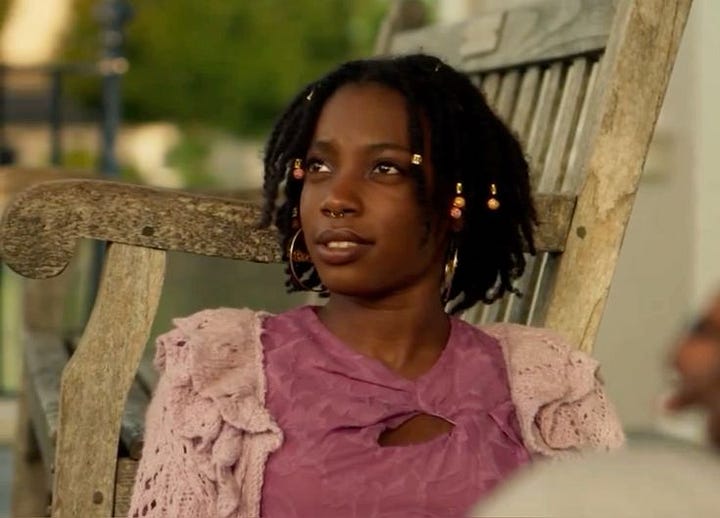
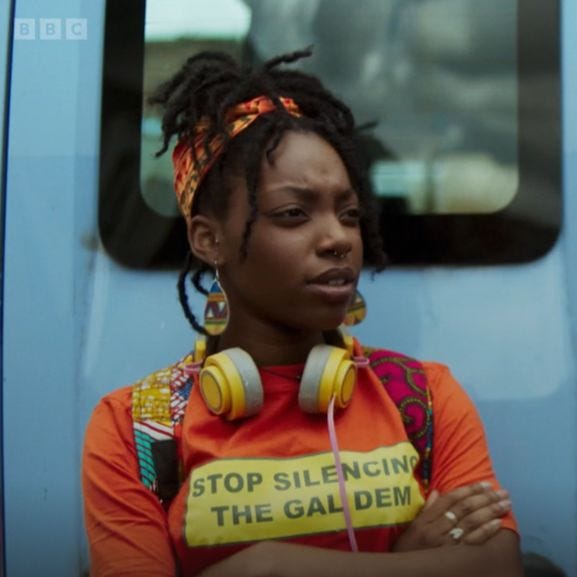
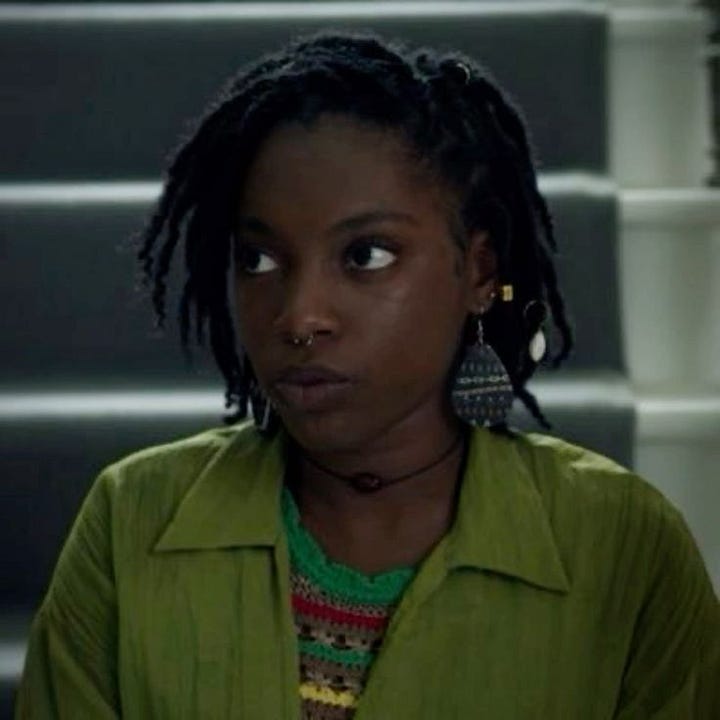
In Boarders, Leah is a young Black British woman navigating the elite world of a private boarding school. Her journey is one of resisting assimilation and asserting her own cultural identity.
Leah’s creativity — in fashion, language, and relationships — becomes a tool of rebellion. She refuses to soften her edges to fit into a system not designed for her. Instead, she reclaims space and redefines what success and expression can look like within that space.
Leah embodies the Visionary Rebel’s commitment to self-definition and cultural liberation, showing how even in constrained environments, creativity can be a form of resistance.
Elsbeth (Elsbeth & The Good Fight)

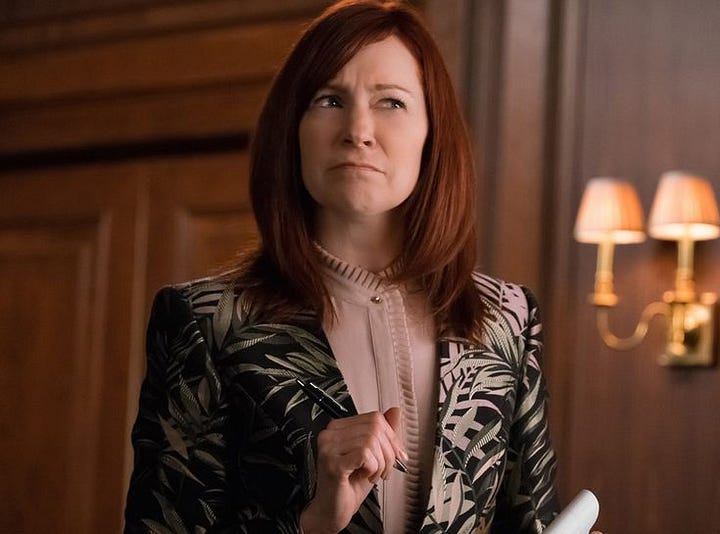

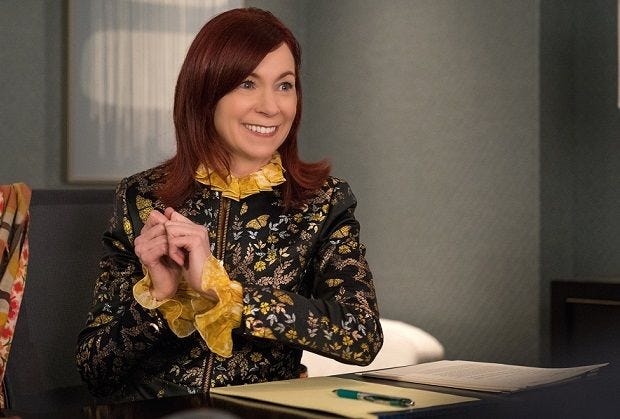
Elsbeth Tascioni, the brilliant and eccentric lawyer in Elsbeth and The Good Fight, is another fascinating Visionary Rebel.
Elsbeth defies every stereotype of the “competent professional.” She is quirky, disarming, and unapologetically herself. But beneath her unconventional exterior lies razor-sharp intellect and moral clarity.
Elsbeth’s refusal to conform to institutional expectations — whether in the courtroom or in life — models a powerful kind of creative professionalism. She reminds us that you don’t have to sacrifice your individuality to succeed. In fact, embracing your full, authentic self can be your greatest asset.
As I reflect on this archetype, I am struck by its profound relevance to our current cultural moment.
We are living through a time of increasing conformity masked as creativity. Algorithms reward the familiar. Market forces encourage mimicry. Cultural gatekeepers demand that new work fit into old boxes.
In this context, the Visionary Rebel is not just refreshing; they are essential. They disrupt complacency. They open up new creative and cultural possibilities. They model what it means to prioritize authenticity over approval, freedom over formula.
But being a Visionary Rebel is not easy. It often comes with real costs; professional risks, public misunderstanding, personal isolation. That is why, as The Culture Keeper, I believe we must honor and support this archetype within our creative communities.
We must make room for messiness. We must celebrate experimentation and failure as much as success. We must resist the urge to immediately monetize or brand every creative impulse. And we must protect spaces where freedom — in art, in thought, in identity — can truly flourish.
I’ll end with a personal note.
It is a living, breathing force, and it needs wild cards to keep it alive.
Whenever I encounter a work that feels strange, playful, or disruptive, I try to lean in rather than pull back. I ask: What new possibility is being opened here? What kind of freedom is being claimed?
In this way, the Visionary Rebel teaches all of us how to remain fluid, curious, and brave.
They remind us that to keep culture alive, we must sometimes be willing to break it open.
- The Visionary Rebel Playlist -
New Release: The Creative Visionary Guidebook: The Prequel is here!
This is more than a guide; it’s a call to reclaim your voice, your vision, and your creative power. Whether you're an artist, disruptor, or dreamer, this book is your invitation to create with purpose and lead with truth.
Start your journey now → https://payhip.com/b/ALQYg
The Difference Between an Artist and a Visionary And How Both Become a Creative Visionary
By Shareece Williams — The OG of The Creative Visionary















I think I’m being called to be a creative rebel because every advice or framework (outside of what you and small amount of people I admire) on being an artist or creative, just doesn’t work for me and it all feels inorganic or even just wrong. I’m still struggling with accepting that my path hasn’t been created and it will only come to fruition as I do it.
Yes! This is ittttt.